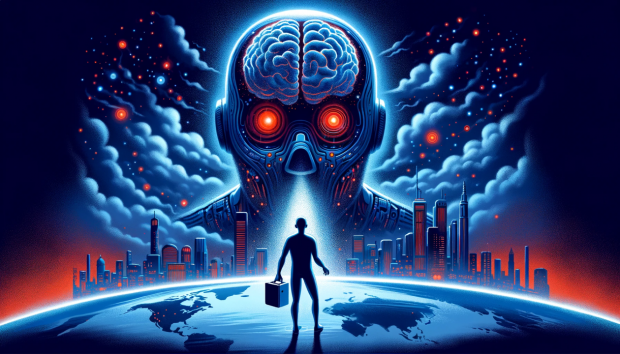
Breaking News
 Still No Justice for COVID Nursing Home Deaths
Still No Justice for COVID Nursing Home Deaths
 How To Make A FREE Drip Irrigation System With An Old 5 Gallon Bucket
How To Make A FREE Drip Irrigation System With An Old 5 Gallon Bucket
 Homemade LMNT Electrolyte Drink | ACTUALLY Hydrate Yourself!
Homemade LMNT Electrolyte Drink | ACTUALLY Hydrate Yourself!
Top Tech News
 Cab-less truck glider leaps autonomously between road and rail
Cab-less truck glider leaps autonomously between road and rail
 Can Tesla DOJO Chips Pass Nvidia GPUs?
Can Tesla DOJO Chips Pass Nvidia GPUs?
 Iron-fortified lumber could be a greener alternative to steel beams
Iron-fortified lumber could be a greener alternative to steel beams
 One man, 856 venom hits, and the path to a universal snakebite cure
One man, 856 venom hits, and the path to a universal snakebite cure
 Dr. McCullough reveals cancer-fighting drug Big Pharma hopes you never hear about…
Dr. McCullough reveals cancer-fighting drug Big Pharma hopes you never hear about…
 EXCLUSIVE: Raytheon Whistleblower Who Exposed The Neutrino Earthquake Weapon In Antarctica...
EXCLUSIVE: Raytheon Whistleblower Who Exposed The Neutrino Earthquake Weapon In Antarctica...
 Doctors Say Injecting Gold Into Eyeballs Could Restore Lost Vision
Doctors Say Injecting Gold Into Eyeballs Could Restore Lost Vision
 Dark Matter: An 86-lb, 800-hp EV motor by Koenigsegg
Dark Matter: An 86-lb, 800-hp EV motor by Koenigsegg
 Spacetop puts a massive multi-window workspace in front of your eyes
Spacetop puts a massive multi-window workspace in front of your eyes
Godfather of AI Warns Humanity Could Face Extinction Within 30 Years

British-Canadian computer scientist Geoffrey Hinton, often called the "Godfather of AI", has raised concerns that artificial intelligence could lead to human extinction within the next 30 years. Hinton, who recently received the Nobel Prize in Physics for his AI work, now estimates a 10% to 20% chance of this outcome, citing the rapid pace of technological advancement as a key factor. Previously, he had estimated a 10% risk, but he has slightly increased the odds based on current developments.
During an interview with former chancellor Sajid Javid on BBC's Today programme, Geoffrey Hinton explained his increased estimate of AI's potential threat to humanity. When Javid remarked on the rising probability, Hinton noted that humans have never faced the challenge of managing something more intelligent than themselves. He pointed out the rarity of such control, using the example of a baby influencing its mother, which he said is one of the few instances where a less intelligent entity controls a more intelligent one, shaped by evolution.
He noted, "And how many examples do you know of a more intelligent thing being controlled by a less intelligent thing? There are very few examples. There's a mother and baby. Evolution put a lot of work into allowing the baby to control the mother, but that's about the only example I know of."
London-born Geoffrey Hinton, professor emeritus at the University of Toronto, compared humans to toddlers in relation to the potential intelligence of powerful AI systems, suggesting that we would be like three-year-olds in comparison. AI refers to computer systems performing tasks that typically require human intelligence, and Hinton expressed concern about how much smarter these systems could become.

 DId Congress Kill DOGE?
DId Congress Kill DOGE?
 Node without Consent
Node without Consent

